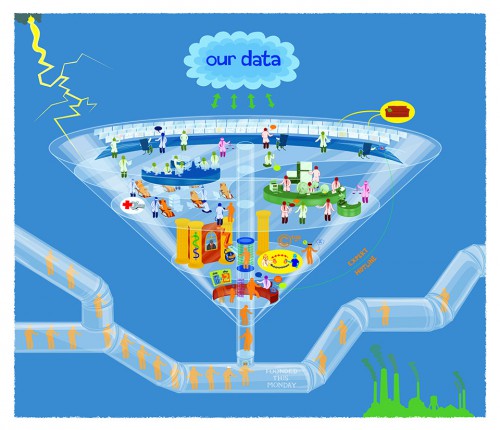Innovative technologies used for whole genome sequencing have developed very rapidly over the past five years. Today the costs and the time required to read the human genome have radically reduced. The new genome technologies are being progressively integrated into clinical practice for the diagnosis and treatment of genetic disorders. GCOF – The Genetics Clinic Of the Future – is a European project that aims at exploring the social implications of whole genome sequencing.
 GCOF brings together a multidisciplinary team of experts, such as geneticists, bioinformaticians, and social scientists. These expert have the task of anticipating the features of the genetics clinic of the future, in which novel genome technologies will meet patients. GCOF aims at exploring the role of different social actors involved, as well as potential controversial aspects regarding the social acceptance of novel genome technologies, like Next-Generation Sequencing (NGS), in order to ensure social sustainability and responsible innovation.
GCOF brings together a multidisciplinary team of experts, such as geneticists, bioinformaticians, and social scientists. These expert have the task of anticipating the features of the genetics clinic of the future, in which novel genome technologies will meet patients. GCOF aims at exploring the role of different social actors involved, as well as potential controversial aspects regarding the social acceptance of novel genome technologies, like Next-Generation Sequencing (NGS), in order to ensure social sustainability and responsible innovation.
The activities of the GCOF consortium concern thematic axes such as data management and control, the definition of a common framework for informed consent, the innovative use of genetic data for diagnosis and clinical practice, public engagement, as well as issues concerning policy making.
Observa is part of the GCOF consortium, by contributing mainly to public engagement. As part of these activities, discussions groups with teachers and students, science communicators, general practitioners, elderly people, and patients’ association are being conducted.
Also, an Italian delegation of ‘ambassadors’ of society will meet experts from the GCOF consortium, in order to share reflections on important elements of the genetics clinic of the future, such as use and control of genetic data, expectations and needs both on the sides of experts and patients, as well as the added value of genetic tests.
More information is available on GCOF web portal.








